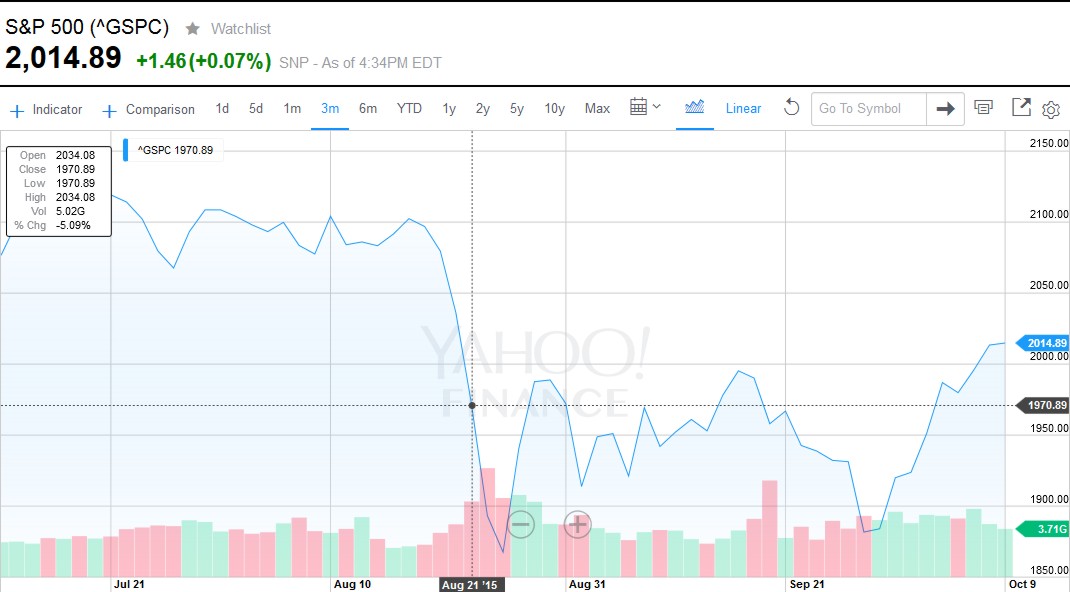
I enjoy re-reading old financial news with 20-20 hindsight. Back on August 21st, Ron Lieber wrote a nice article for the New York Times entitled, “Advice After Stock Market Drop: Take Some Deep Breaths, and Don’t Do a Thing .” That day the S&P 500 closed at 1,970.89, down 7.51% from its high on 5/21/2015 of 2,130.82. In the article, Lieber offered this advice:
The impulse when the stock market falls hard for a few days in a row is to do something. Anything. Our life savings are often on the line, after all.
But that’s just the thing: Stocks are most useful for long-term goals. So unless those goals have changed in the last few days, it probably doesn’t make much sense to overhaul an investment strategy based on a blip of market activity.
So pour yourself a drink, or sit down with a pint of ice cream, and consider the following six things.
These are his six pieces of advice:
- You are not the stock market. Chances are, your portfolio is a diverse mix of investments.
- If you have been investing in stocks in the last six years, you most likely are a big winner.
- At some time in the past, when you were not scared, you made a decision to construct your portfolio a certain way.
- Long-term investors have time to recover.
- Some people cannot handle the stress of investing in stocks. But try to give this more time, and consider the alternatives. There are few investments that can deliver the kinds of returns that stocks can without their own accompanying anxiety.
- This is what markets do. There is absolutely nothing abnormal about what is going on here.
Two trading days after Lieber’s article was published, the S&P 500 bottomed at 1867.61 on 8/25/2015, down 12.35% from its prior peak.
As of last Friday (10/9/2015), the S&P 500 closed at 2,014.89, up 2.23% from the date of Lieber’s article and up 7.89% from the bottom.
Most of the losses this quarter came in July and August with the markets bottoming on August 25th. Lieber’s admonition to resist the impulse to “do something” is a good one anytime there is a drop in the markets.
No short term result (less than five years) should cause you to abandon a brilliant long term strategy.
Photo used here under Flickr Creative Commons.
